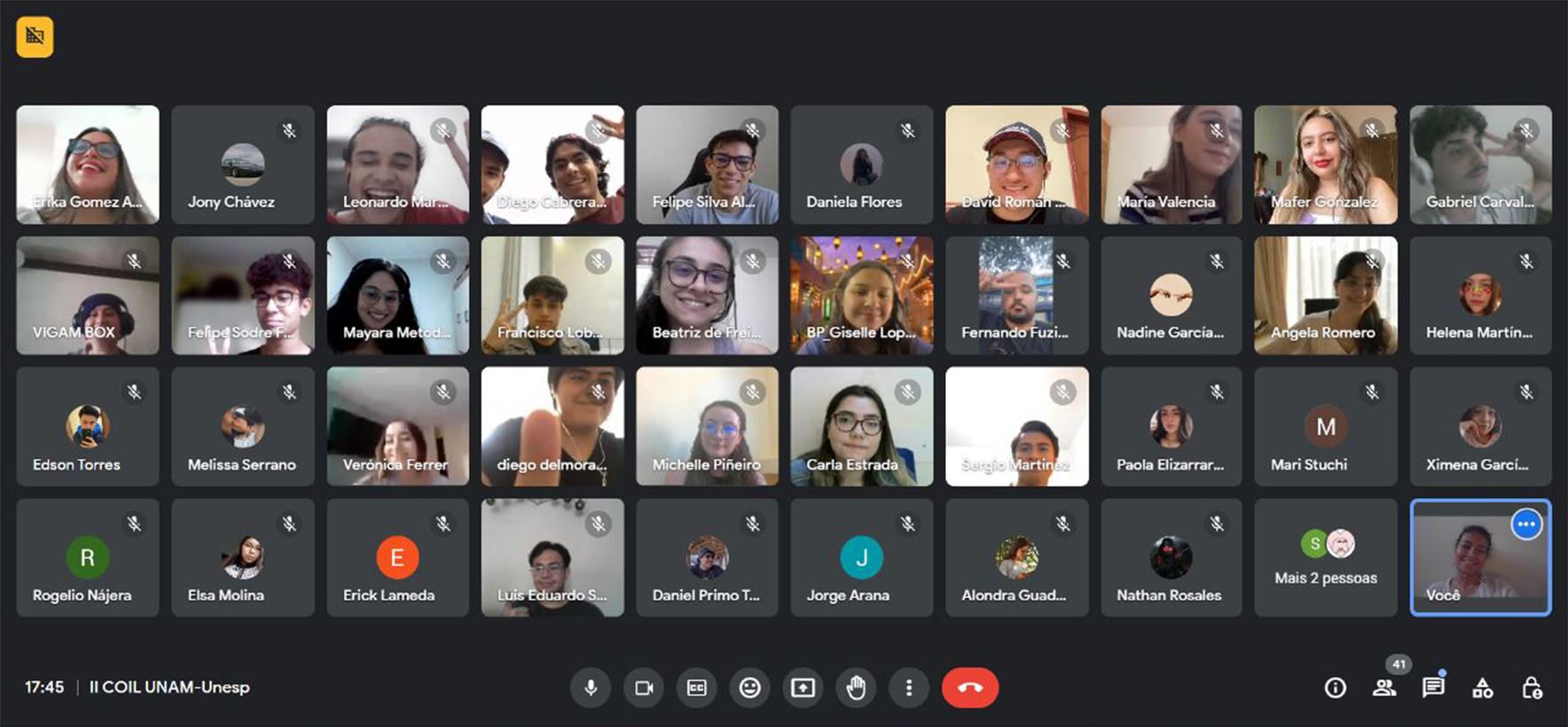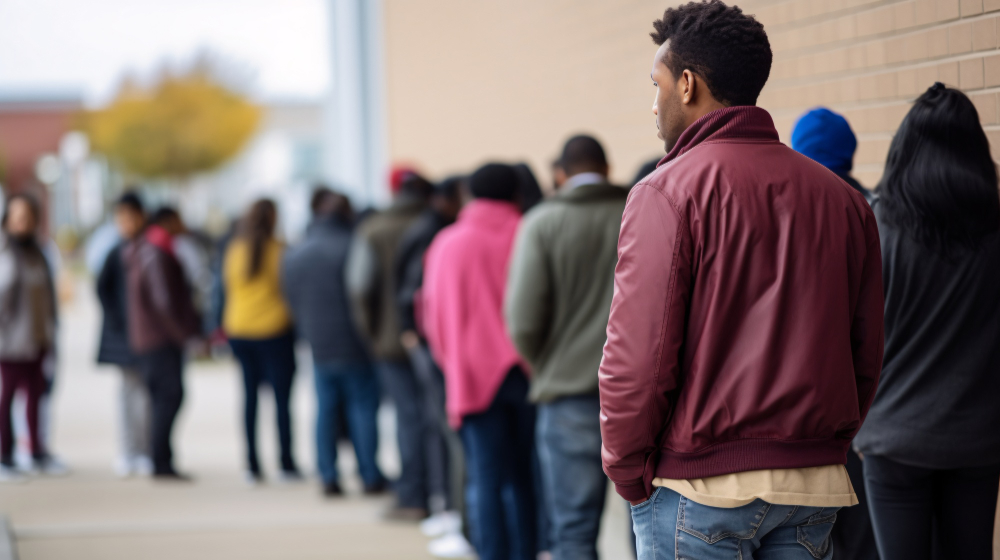- 14 3402-5578
- Rua Hygino Muzy Filho, 737, MARÍLIA - SP
- contato@latinoobservatory.org

Last Wednesday (26), students from the International Relations course at UNESP in Marília and the Facultad de Contaduría y Administración at the Universidad Nacional Autónoma de México (UNAM) held an online meeting in the Collaborative Online International Learning (COIL) modality, The event, organized by Latino Observatory in partnership with the Academic Center for International Relations “Diplomata Sérgio Vieira de Mello” (CARI) and UNAM, was attended by over 50 students. This is the second COIL organized by CARI and the Latino Observatory. The first one took place in October 2022, with the participation of students from the University of Maryland, Baltimore campus, on the initiative of Prof. Felipe Filomeno.
II COIL was organized around the Mexican film Roma, released in 2018 and winner of the Oscar for Best Foreign Language Film in the same year, with the aim of promoting a debate between UNESP and UNAM students. A few days earlier, the film was broadcast in person to students from the respective universities as an academic activity to support the following online debate.
"Roma" is a dramatic film set in Mexico City in 1970. The routine of a middle-class family is silently controlled by the nanny and maid, Cleo. During a year, several unexpected events begin to affect the lives of all the residents of the house, giving rise to a series of changes, collective and personal. Director Alfonso Cuarón develops a sensitive and poetic work based on Cleo, offering an emotional portrait of life in a time of social and political transformations in Mexico.
The activity on April 26 carried out through the Google Meet platform was divided into three stages: opening, interaction and conclusion. The work took place without defining a specific language, as the main objective was simply to enable interaction between students. Therefore, the participants communicated in English, Spanish and, eventually, in Portuguese.
The event started with speeches by Juan Carlos Barron Pastor, professor and researcher at the Centro de Investigaciones sobre América del Norte (CISAN) at UNAM, and Marcos Cordeiro Pires, professor at UNESP and coordinator of the Latino Observatory.
Soon, the II COIL student-organizers divided the participants into groups through virtual rooms of the same call on Google Meet. Each room had at least one Brazilian student who speaks a language other than Portuguese, in order to facilitate communication between participants if necessary. For an hour, UNESP and UNAM students used questions from the film Roma to discuss cultural, psychological and historical aspects of Mexico in the 1970s, comparing them to the current Mexican scenario and the historical experience of Brazil.
The interaction between students from both universities was extremely spontaneous, so that they felt free to exchange other cultural experiences and discuss other everyday matters lightly.
After an hour of debate, a few minutes were available for the participants who could comment on the details that caught their attention and on what they thought of the dynamics of the activity in general. In fact, the event proved to be very enriching for all the students present, as some students made clear. The connection between the participants was such that they exchanged social networks, as a way of keeping in touch, when II COIL was declared officially closed.
Thus, it is clear that events such as the II Collaborative Online International Learning are important for the academic experience of students at universities, especially when studying about the relationships between different cultures. New experiences will come around. Wait!











